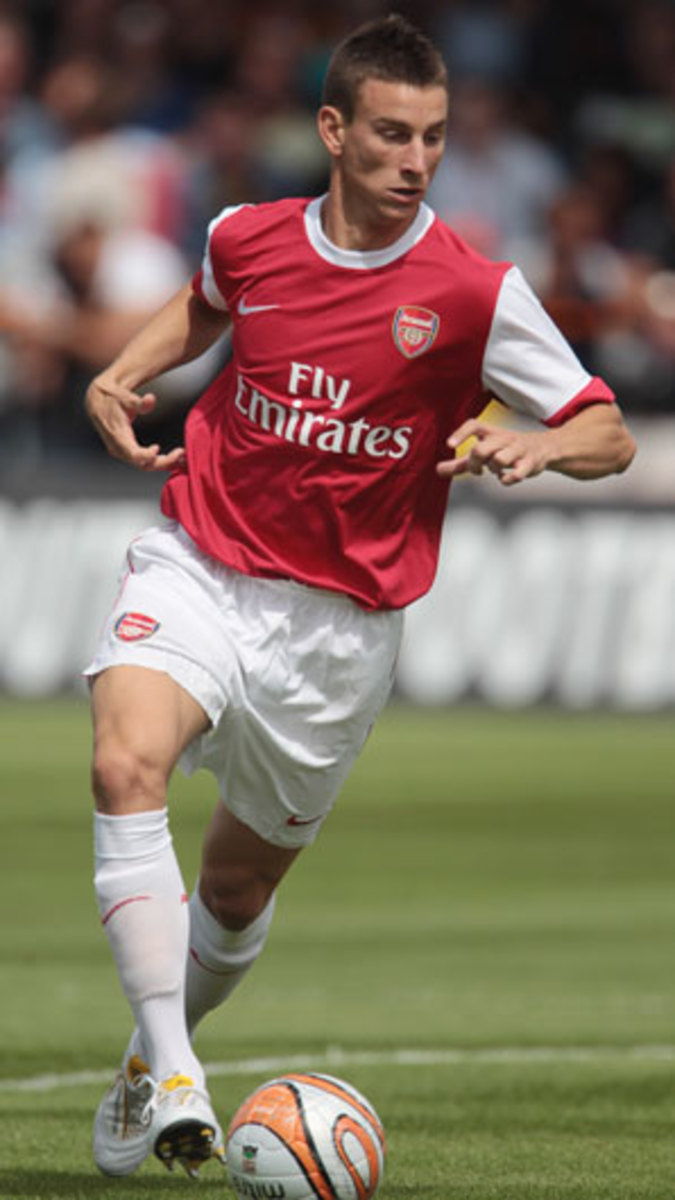
UEFA's regulation uncertainty, economic woes cause few transfers
As most economists will tell you, the more times are uncertain, the more folks hunker down and count every penny. Judging by transfer activity (or lack thereof) this summer, most clubs feel the same way.
As of Thursday, the Premier League's traditional "big four" of Arsenal, Cheslea, Manchester United and Liverpool had signed just two players for more than 10 million euros ($13 million): Laurent Koscielny, who joined the Gunners, and Ramires, whose move from Benfica to Chelsea is all but wrapped up. Last summer, those same clubs made five signings north of the 10 million range. Serie A's big three of Juventus, Milan and Inter broke the 10 million mark six times a year ago. Thus far, Leonardo Bonucci's move to Juve, for 15.5 million euros ($20.5 million), is the only one over 10 million. In La Liga, Seville, Barcelona and Real Madrid, having made eight 10 million-plus signings last year, are down to five this season. And in Germany, traditionally big-spending Bayern hasn't shelled out a single penny, after forking out nearly 60 million euros (almost $80 million) on Arjen Robben and Mario Gomez last summer.
So why has there been so little movement at the higher end of the market? Broadly speaking, you can chalk it up to a number of reasons, all of them linked to uncertainty.
The first is that we're still in a global recession and money simply is not rolling in at the rate it once did. This has caused sponsorship deals to be flat, hurting clubs that seemed to operate on the assumption that they would increase every season. The value of TV rights deals is also in question. In Italy, clubs are moving toward a "collective sale" system, and while it's good for the game in the medium-term, in the short-term it will likely mean the bigger clubs will earn less. In Spain, which is persisting with individual rights, the future of Mediapro, which pays Barcelona in excess of $185 million a season, is in doubt after the broadcaster sought bankruptcy protection. And in England, the growth in the value of overseas rights no longer appears as meteoric as once predicted.
Another factor is UEFA's Financial Fair Play regulations, which will kick in starting with the 2012-13 season. The stated aim of "Financial Fair Play" is to ensure that clubs operate "within their means" and that spending does not outstrip revenue year after year. Fair enough. The problem is that while UEFA has appointed a "Club Financial Control Panel," the rules have yet to be finalized. An early version that linked spending to a proportion of turnover was scrapped in favor of a hazier concept in which clubs would have to show a profit every so often or "over time." The reality is that all of this needs to be hammered out with clear guidelines and that simply hasn't happened yet.
And so we have a situation in which everybody proceeds with caution, aware that a false move now could prove to be very expensive in a few years' time. (There is a bit of a paradox here: Once the rules are finalized you might actually see more spending, if only because clubs may want to spend heavily before the door shuts.)
Then there's the fact that the slowdown leads to a vicious cycle, especially when it comes to off-loading big-name players. Barcelona's Zlatan Ibrahimovic may not have a place in Pep Guardiola's starting XI next season, but given the size of his contract and the fact that he cost so much money, he's extremely difficult to sell. The same goes for Diego and Felipe Melo; they cost Juventus a combined $73 million last year, but their value has declineed severely after subpar campaigns.
If you can't move your pricey signings -- or can only move them at a huge loss -- you're basically stuck with them. And even if these guys had admirers around Europe, the fact is that there really aren't that many clubs with $30 million to $40 million lying around to gamble on players with enormous long-term deals.
Of course, the transfer window remains open until Aug. 31 and one big sale can create a chain reaction of moves across the continent. We saw it last year when Inter sold Ibrahimovic and Maxwell to Barca and effectively used the funds to buy Samuel Eto'o, Diego Milito, Thiago Motta and Wesley Sneijder (gee, wonder who got the better of that deal?). But the fact that clubs are willing to hold out until the last possible minute in search of bargains underscores just how tight the money is even among the so-called elite.
All of this, of course, is great news if you're a Manchester City fan. Thanks to Sheikh Mansour's investment, City operates virtually on its own in a buyer's market. Everywhere else, however, uncertainty reigns. And given the amount of debt racked up by most top European clubs, you can expect this situation to endure for the next few seasons.





